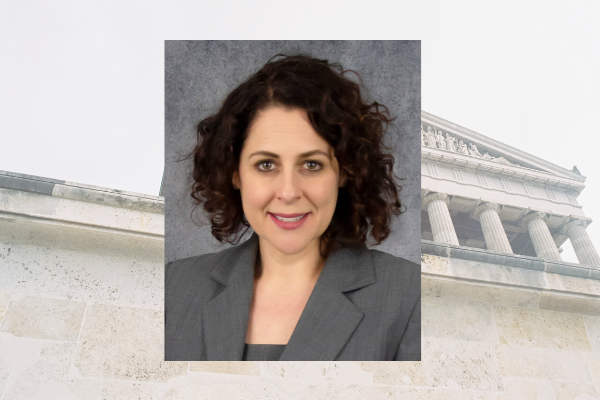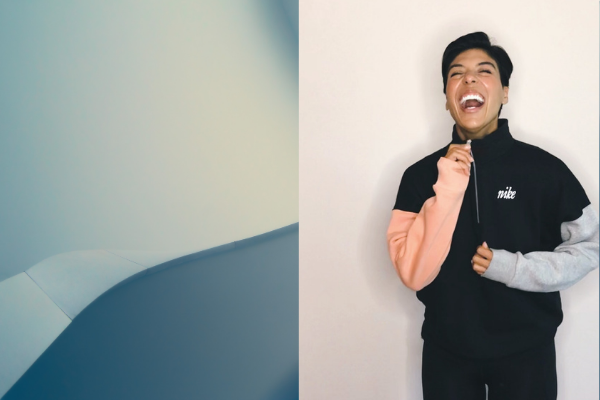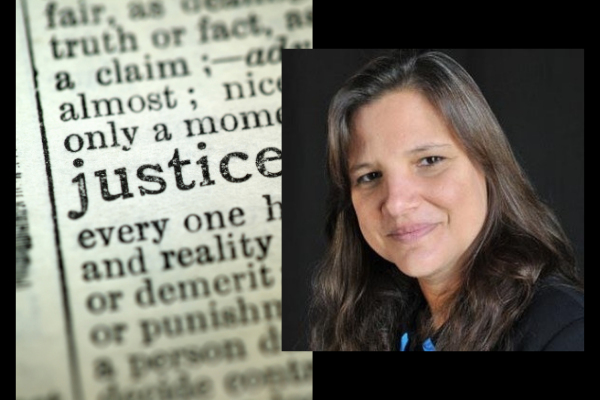Name: Shaun Hawkinson
Location: Chicago, IL
What do you do?
I’m a patent attorney. About four years ago, I transitioned from doing patent litigation at a big law firm (McDermott Will & Emery) to doing patent prosecution at a smaller law firm (Lempia Summerfield Katz LLC). I help clients secure intellectual property rights, namely patents for their ideas, creations, products and services. It’s all transactional, which suits me a lot better than litigation. When I practiced patent litigation, it was so time consuming and the hours and demands of it were not for me, especially during a time when I was starting a family. Besides, litigation in general is just not for me – I’m very non-confrontational. It’s not why I went to law school. What drew me to patent law is the technology side of things and using my engineering degree and that part of my brain.
What’s a typical day like for you?
This practice is all deadline oriented which is nice. Once you file a patent application, you wait to hear back from the Patent Office. After the Patent Office picks up and starts reviewing your application, they provide an official response, which gives you a certain period of time to respond, and it’s usually three months. In this way, you always know when something is due, which makes it possible to get ahead of the game. The bulk of the work I have now is drafting patent applications or responding to these official communications from the Patent Office. Drafting office action responses typically takes me between five and seven hours (so an entire day). It’s not efficient to work on one thing for a half hour and then switch to something else so I try to block off my days in three to four-hour time blocks.
Patent applications must include figures, so I get to create visuals to illustrate certain things. It’s like arts and crafts! I use Visio, Paint, Microsoft Word or PowerPoint to create the figures. It can be very tedious, but it’s a nice break from writing all day.
What do you like most about what you do?
I get to nerd out on particular technologies, and I get to learn about new technologies every day!
What other activities or organizations are you involved with?
I’m on the Professional Board of an organization called CARPLS (Coordinated Advice & Referral Program for Legal Services), which allows me to be involved on the pro bono side of things.
I’m also part of the Richard Linn American Inn of Court, which fosters guiding principles of professionalism, ethics and civility in the practice of intellectual property law. This group is solely IP attorneys here in Chicago, so it’s a great way to stay connected with people in my profession.
What inspired you to join the legal profession?
Honestly, not wanting to get a job out of college. I was not ready to graduate and work as an engineer for the rest of my life with no other options. It seemed scary. It was either business school or law school and many people told me that a law degree would pair well with my engineering degree and I could go into intellectual property law. And that sounded great!
So did you take the patent bar exam, and if yes, what was that like?
Yes, but not right away. I took it seven years after graduating from law school. Studying for the patent bar is similar to studying for the bar exam and the exam itself is a full-day timed exam.
How do you define success?
I think success is an individual thing that changes depending on who you’re talking to. I don’t think it’s one size fits all. A lot of people think that external factors – factors other people associate with you, such as title or income – define success, but I think it’s an internal state of mind and very individualistic. For me it comes down to setting and achieving goals. If you have a goal, whatever it may be, and you work toward it and achieve it, that is success. That and having meaningful personal and professional relationships.
What is an example of a big challenge you have had to work through and how did you work through it?
My undergraduate degree. Prior to going to law school, I can’t tell you how many times I was told “you can write your own ticket” if you have law and engineering degrees. And that sounded amazing! But what they didn’t tell me is that law firms or companies are only looking for certain types of engineers that become lawyers. I have a civil engineering degree and law firms at the time (and still are to some extent) were looking for attorneys with electrical engineering degrees because of the types of technologies being patented. Electrical engineering has always seemed to be the hotbed and the most coveted degree in patent law. My senior design project was designing a sewer system. Not many companies are looking to protect ideas involving sewage. I wasn’t able to find any jobs upon graduation, so I moved to Oregon and worked as a civil engineer with the idea being I’d return to my quest of becoming a patent lawyer down the road.
Two years later, I left that job and moved to Chicago and fell into the e-discovery world. It was a good transition job. I kept hearing from law firms that I didn’t have the right degree and that I have been out of law school for two years and have no experience. When I asked them what I could do because this is what I really wanted to practice, they recommended going back and getting my electrical engineering degree. That sounded crazy and I knew there had to be another path. And there was. It was incremental, but it ultimately worked.
I used my e-discovery experience to get into McDermott as a staff attorney. It was a non-partner track position and had nothing to do with intellectual property, but it was a job at a large international law firm. I did that for four years and during that time I made connections with attorneys in their IP group. I would attend CLEs and take advantage of any opportunity to get in front of them. Then when an opportunity came up for an IP litigation associate, they came to me and offered me the job, which I immediately accepted. It wasn’t exactly what I wanted to do, but I knew the role would get me one step closer to patent prosecution (again, the transactional side of patent law). So I did that for four years and then I decided to move to a small firm – the firm I’m at now – to do patent prosecution. And I was right, this is exactly what I want to do!
I graduated from law school in 2003 so it took me a long time to get here. It was quite a winding road and most people don’t have that long of a detour, but I had a very interesting path and good experiences along the way and I really appreciate all of it.
And thank goodness I didn’t go back and get my electrical engineering degree. When I work on those types of projects now, I don’t enjoy them nearly as much as other technology areas. Also, fun fact – since I’ve been at this firm I’ve had an opportunity to work on a project that was right up my alley. It was a sewer pipe inspection system! So it has all come full circle????
What has been your proudest moment professionally?
Getting my first patent attorney job at McDermott because it wasn’t just luck. It was part of my master plan, and it worked! And then making the move to where I am now. For many people, that wouldn’t be an easy decision because for many people, being an associate at a big law firm is a coveted job. But it felt good and true to who I am to give up the money for the lifestyle that I wanted. And it was definitely the right choice.
What do you enjoy doing outside of work?
Anything outdoors. Moving out of the city for us was huge for having kids and anytime I can be outside in the yard with them is great. I also enjoy my daily walks to the lake.
What’s your go-to wellbeing activity?
My morning walks are really where I center myself for the day and process a lot of stuff. If there is a problem that I am working through in my head, my walk is so peaceful and quiet and allows me to focus.
What is one thing about you that you think people would be surprised to learn?
I’m an open book so people aren’t surprised by much but a fun fact about me is that my family makes pure Michigan maple syrup. If anyone is interested, I can talk about maple syrup for hours.????
If you could wave a magic wand and change one thing about the legal profession, what would it be?
I would change external demands and expectations, especially the billable hour requirement. It’s stressful. It’s stressful when you have the hours because you’re working so much, but it’s also stressful when you don’t have the hours because you’re constantly worried about making your billable hour requirement! Why do hours matter if you do the work and do a good job for the client? And you would definitely need a magic wand to change this because the billable hour is so ingrained in the culture.
What is one new thing you are hoping to learn from others in this community?
It’s always interesting to learn about other people’s experiences – how they got to where they are and what brings them joy.
And what is one thing you are looking to share with others in this community?
I would love to share my career path experience. It’s non-traditional and shows how persistence and having a positive attitude is a powerful combination. That, and maple syrup. I’m always happy to share when it comes to maple syrup. ????








